What you need to know before starting a podcast
Podcasts are back in full force, its popularity is peaking. More people than ever before are listening to podcasts on a daily basis. You probably also have a favourite podcast that you listen to while commuting, cooking, working out, driving or cleaning the house. Podcasts are available everywhere – Spotify, Soundcloud, iTunes or one of the many other apps available out there.
In this post we’d like to get a few things cleared up. Why are podcasts so popular? What makes them have such a high demand in a world so highly dominated by visuals? And should you be inspired to experiment with podcasting: what do you need to know and which equipment is required for a podcast?
Three reasons why we like podcasts:
- Podcasts allows you to multitask
This is the main reason why podcasts have gained popularity – they allow us to save time. You can listen to a podcast anytime and anywhere – whether it be in the car on your way to work or while working out, you can even listen to podcasts while you are doing your Sunday chores at home. It’s the ideal way of filling those empty or less usefull moments on a day. You double the effectiveness of your time: you listen to something and treat your brain to something good and meaningfull, while at the same time get other things done.
- Podcasts are entertaining
Podcasts allow you to not only learn new things and find out the latest news. Listening to them also can be a source of entertainment. With the diversity of formats – interviews, conversations, late-night shows, fiction and non-fiction storytelling, as well as video and live podcasts – you are guaranteed to find a podcast that you enjoy listening to.
- Podcasts allow to build a genuine connection
There seems to be a psychological reason why podcasts work: the human voice gives a sense of trust. In other words: you are much more eager to actually believe what’s being told. That is why podcasts are also a great way to build a genuine connection between you (as a podcast maker) with your audience. It makes listeners feel like being part of the conversation!
Do you have a topic about which you have a lot of knowledge and you are enthusiastic to share it with the world? Why not start a podcast? As the audience for podcasts continues to grow, there has never been a better time to start a podcast for your business, brand, or a personal hobby. Read this blogpost to see what it takes to become a podcast creator!
Podcasting beginner’s guide
Before we dive into the details, it is important to mention that podcasting does take time, (a bit of) money and perseverance. Yet, if there is a topic you are truly amped about and want to share it with the world – it is all worth it in the end!
There are four necessary steps when starting to create a good quality and enjoyable podcast:
The what and why of your podcast
As for any project, first you must have an idea of what you want to do – why am I starting a podcast and what is my podcast going to be about? A topic that you are passionate about or interested in are your best choices – maybe it’s photography, filmmaking or maybe it’s vegetarian cooking? The possibilities are endless, just make sure you pick a topic you can talk about endlessly with the same enthusiasm as you began!
Choose a podcast format
The format defines the concept of your podcast. You’ll know podcasts in different shapes: single host, scripted stories, in-depth interviews and many more. Choose a format that offers enough flexibility so that your reservoir will not run dry too quickly. By the way, did you know that the optimal podcast length is between twenty and thirty minutes? Something to keep in mind when choosing a podcast format!
Audio or video (or both)?
Maybe you want a podcast with video on YouTube plus an audio version of that podcast on Spotify? These are things you should consider and decide upon. It probably also depends on the content you want to share in your podcast, and how necessary video is in this regard.
Choose a name and cover art
Once you’ve decided on the niche and topic you want to cover, as well as the format of the podcast, it is time to give your podcast a name. The name you choose to call your podcast can leave a significant impact on your podcast’s perceived value. And so can the cover art – keep it simple, yet interesting and eye grabbing!
Good equipment = high quality!
The more limited and lower cost your setup & equipment, the more limited the sound quality of your show. So if you want to start without huge upfront costs but don’t want to compromise on quality, then why not rent some gear to improve your podcasting? Read more about 8 essential pieces of equipment to boost your podcasting game in the next section!
What equipment do you need for a podcast?
On to the next question: what equipment do you exactly need to start a podcast? If you have a computer with a USB microphone and access to the internet, you already have something to work with. A relative simple USB microphone setup can provide good results if you choose the right mic. If you are not sure whether podcasting is for you, yet still want to try it out – why not rent a microphone and see whether you enjoy podcasting?
If you want to take the overall quality of the podcast to the next level though, these are four must-haves you need for your podcast setup (it is likely that you have a few things from the list already):
A computer with recording & editing software
A computer – everyone has one! This is perhaps the most essential piece to podcasting (besides the microphone) because how else are you going to use recording and editing software to make the final podcast sound clean and professional? Some of the software that you can try: Audacity (free), Garageband (native on each Apple Mac), Ocenaudio (free) and Adobe Audition.
A good and silent recording space
Recording a podcast doesn’t necessarily take a professional sound studio with fancy electronics. As long as the room has no echo, little to no reverb, and a full, rich sound. You want to make sure that the room where you records has a decent number of furniture items in it, as these items will help absorb the sound. Furniture, but also curtains, paintings on a wall and carpet on the floor help to break up the sound waves. This will prevent a lot of echo in your recording. Also make sure it’s somewhere where noisy neighbours and other ambient sounds will not have a big chance to disturb you while you’re recording the podcast.
An XLR or USB microphone
A microphone is probably the most critical piece of equipment for podcasting. The microphone you decide to choose will define the overall audio quality and clarity of your podcast. Unsurprisingly, there’s a lot of discussion around which mic is the best. If you want to experiment and see which microphone you prefer the most, why not rent a few and see which one fits your needs best? See the microphones available for rent on Gearbooker.
There is one main thing you need to consider though – is the environment where your recording will take place quiet enough? If yes, a good idea is to use a condenser microphone – it is high on sensitivity meaning that it picks up every little sound. But if the recording environment is not quiet or a professional setup , it is probably best to use a dynamic mic.
If you are a beginner, try using a USB podcasting microphone. It directly connects to your computer via a USB port and is easier to set up than an XLR podcasting microphone. XLR mics are most often used in professional recording circumstances, such as in recording studios. XLR podcasting mics require additional equipment such as interface, mixer or a digital recorder.
Headphones
At the beginning, any earphones or headphones will do the trick. For best results, do try closed-back (‘over ear’) headphones while recording – this will isolate you from ambient sounds and allow you to hear yourself clearly. It will definitely be more comfortable than a pair of ‘on ear’ earphones. Unsure of what headphones to pick? Take a look at all the headphones available for rent on Gearbooker!
Mic boom arms & shock mounts
In order to be able to move freely during the podcast recording, you can opt to use a mic boom arm or a shock mount. A mic boom arm will allow you to keep the mic in the desired position for the duration of the whole recording without the risk of being moved accidentily. And a shock mount will absorb and eliminate little noises that arise from accidentally slamming the table or shifting the microphone.
The best podcast equipment
Mixers are used to improve audio quality and offer multi-channel recordings for those with co-hosts or guests. It’s also a required piece for anyone using an XLR microphone. We interviewed professional podcast producer Joey – owner of Deaudiofabrique. His suggestion is to use the RØDECaster Pro mixer. For those with little or no technical knowledge, it is one of the most easy to use audio mixers. See what mixer works best for your needs? Rent one on Gearbooker!
Final tips for recording a podcast
Use the the proper microphone techniques! Always make sure that the microphone is the same height as your mouth and keep in mind that the closer you are to the mic, the louder your voice will sound.
If you want to take your podcasting game to the next level and record your podcast in top quality? Consider to rent a podcasting studio. There are even popup podcast studios which are built up on whatever location you wish!
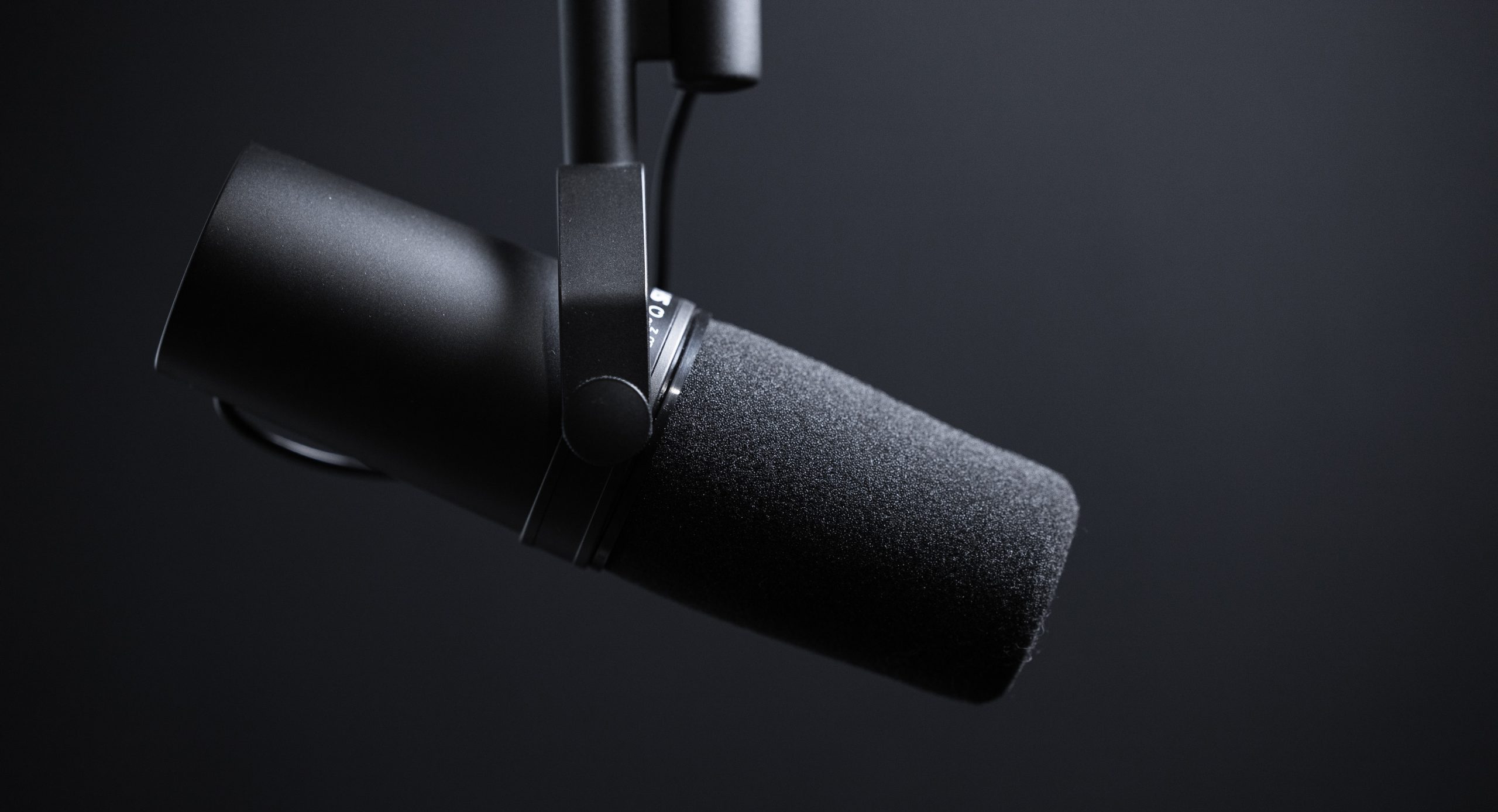
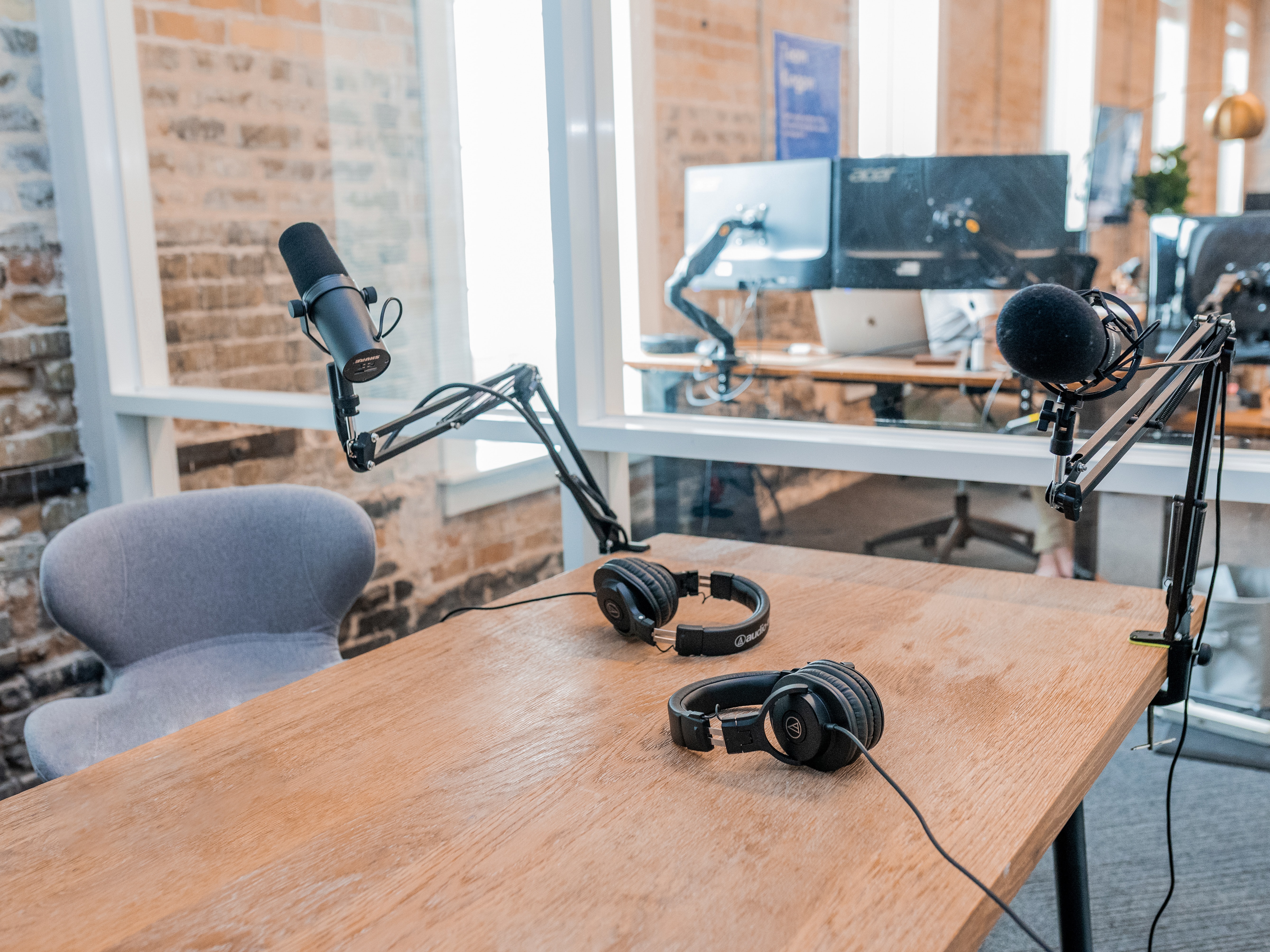
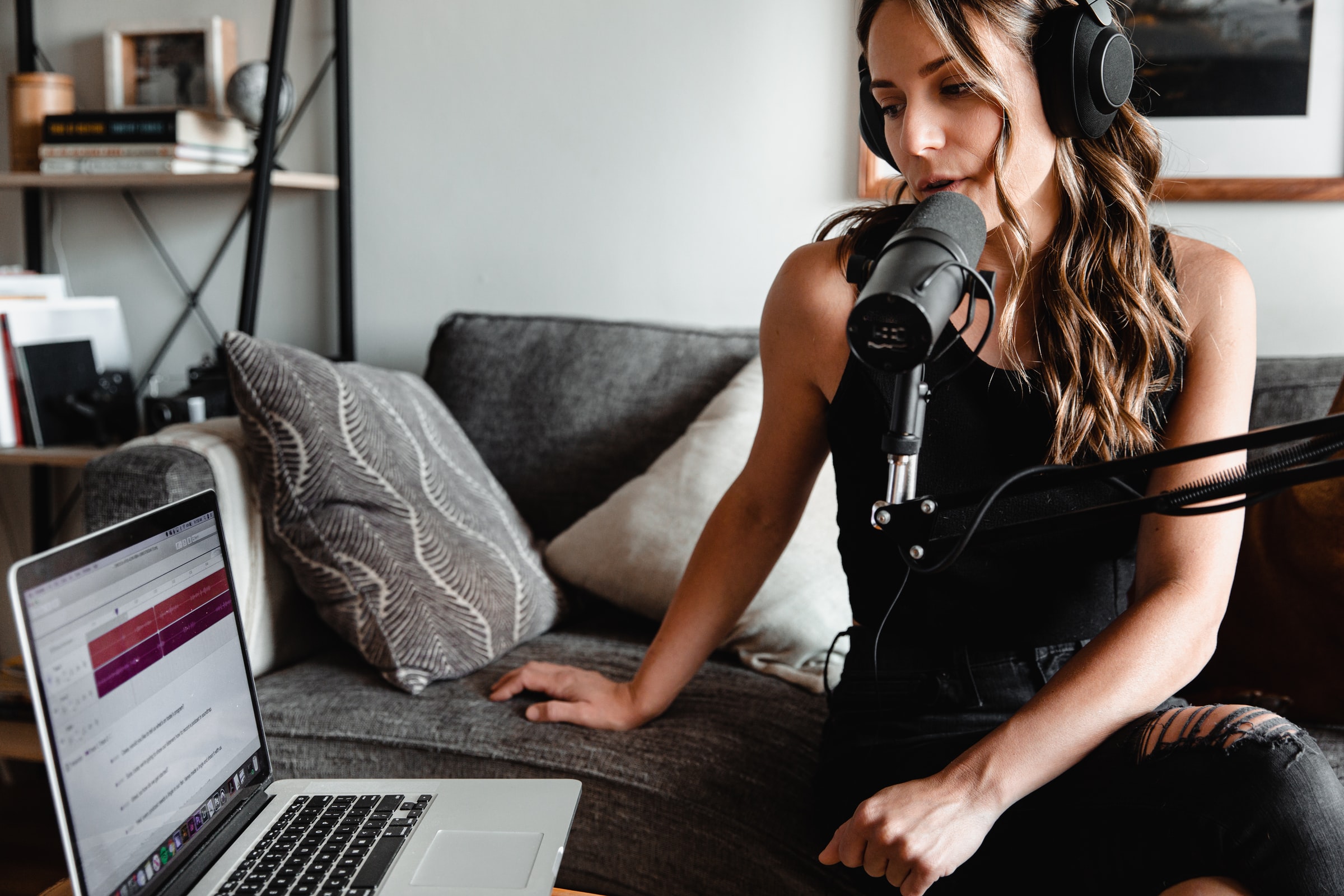
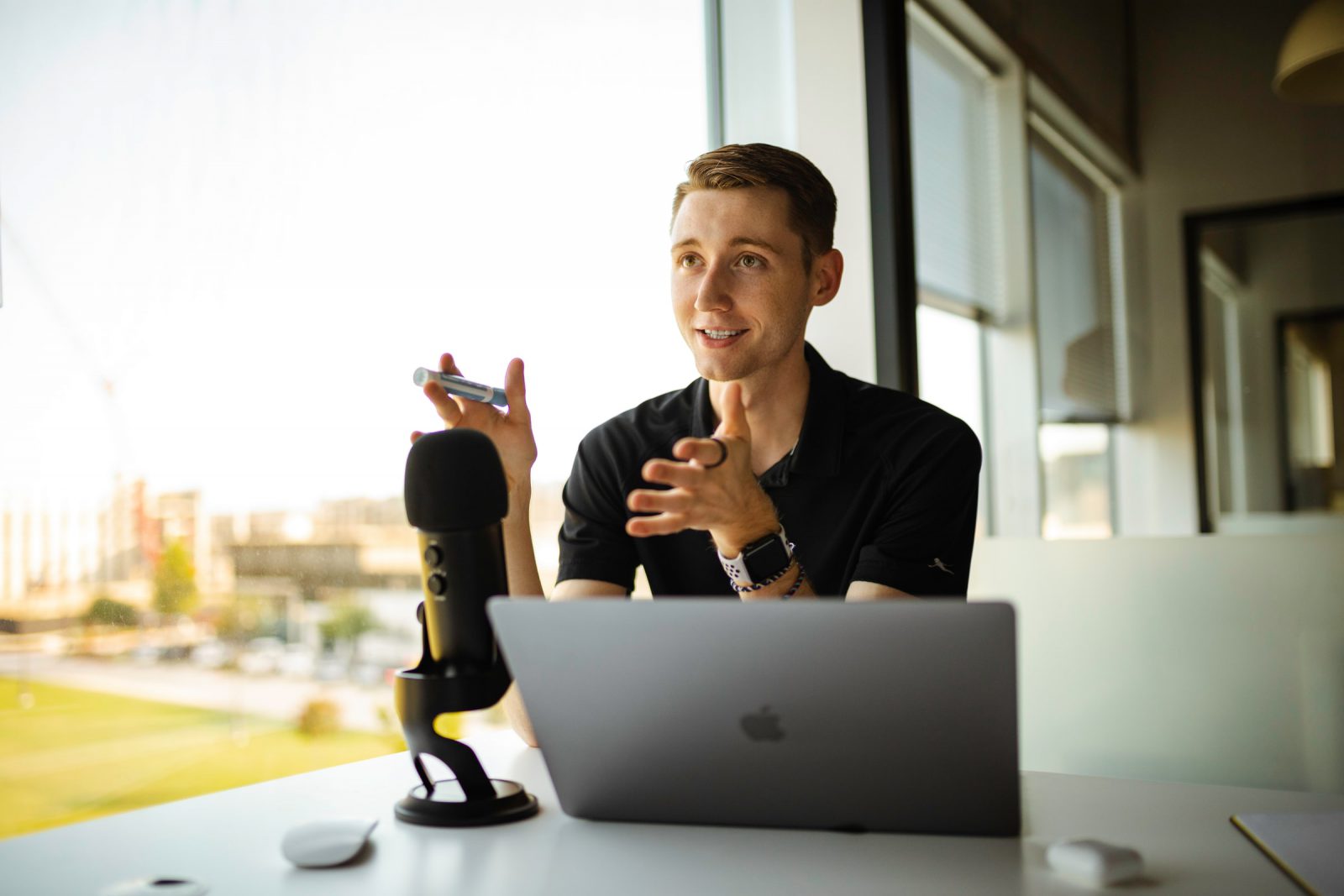
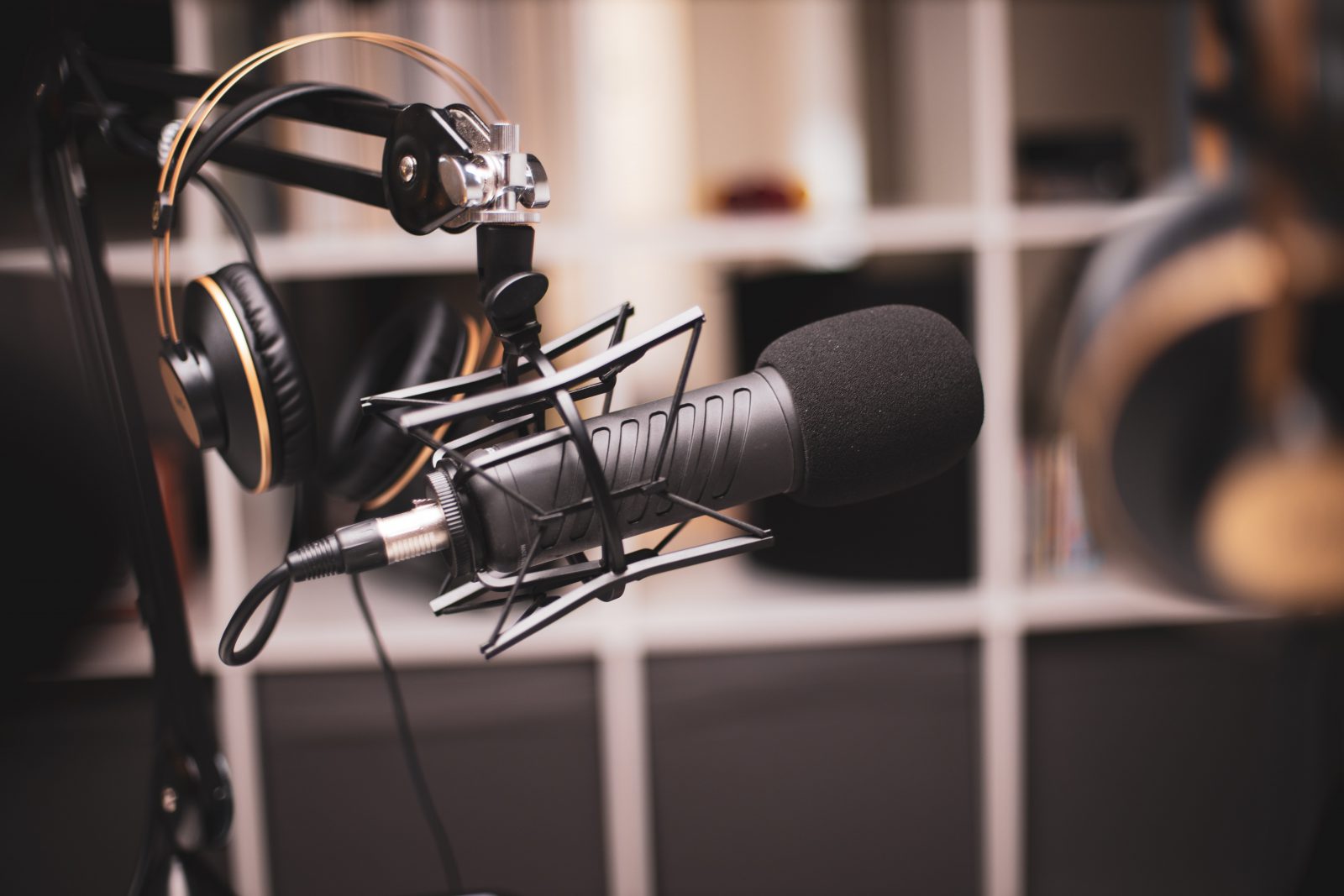
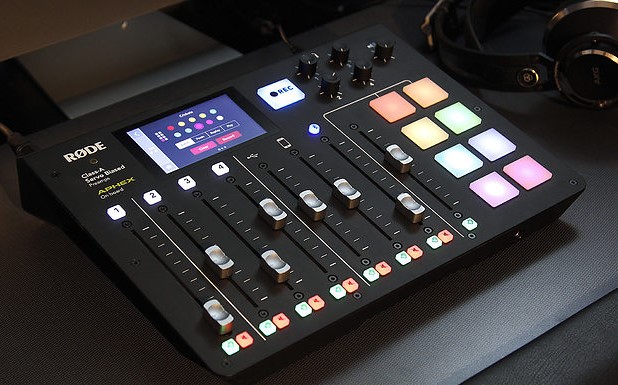
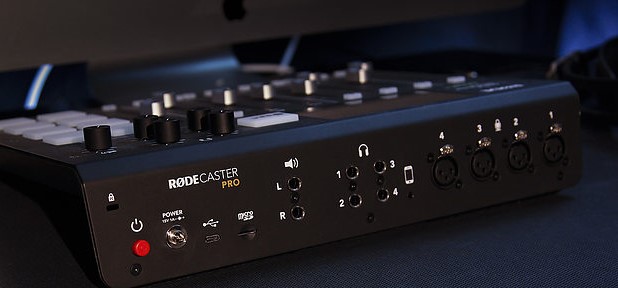
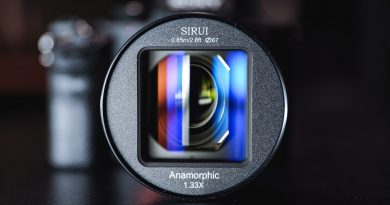
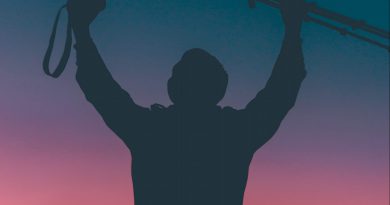
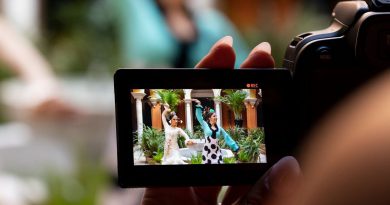
Pingback: Which microphone is the best for a podcast? – The Gearblog
Pingback: Which microphone is the best for your podcast? – The Gearblog
Pingback: Welke microfoon is het beste voor je podcast? – The Gearblog
Pingback: Quel microphone est le meilleur pour votre podcast ? – Le Gearblog